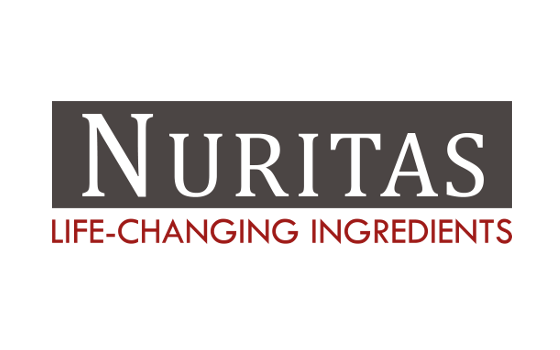 BASF Human Nutrition and Nuritas™ have announced a collaboration that will see the commercialization and discovery of health-benefiting bioactive peptide networks within specific target areas of significant value. Peptides are biologically occurring short chains of amino acids that act as potent signaling molecules in the body. The peptide networks of focus in this collaboration are natural, food-derived, patented and of significant benefit to the health of consumers. These health benefits include for example anti-inflammatory activities.
BASF Human Nutrition and Nuritas™ have announced a collaboration that will see the commercialization and discovery of health-benefiting bioactive peptide networks within specific target areas of significant value. Peptides are biologically occurring short chains of amino acids that act as potent signaling molecules in the body. The peptide networks of focus in this collaboration are natural, food-derived, patented and of significant benefit to the health of consumers. These health benefits include for example anti-inflammatory activities.
The initial part of this substantial deal sees Nuritas™ grant an exclusive, royalty-based license to BASF to commercialize one of its existing peptides across a number of applications. The second component of the collaboration entails on-demand discovery of new peptides, based on health areas that are strategically important to BASF’s customers and, ultimately, the consumer.
To drive this on-demand discovery of new peptides, Nuritas™ will deploy its unique technology platform. This uses Artificial Intelligence and DNA analysis to predict, unlock, and validate highly efficacious peptides, exclusively from natural sources. BASF will use its scientific know-how and global reach for the scale-up, formulation and commercialization of new bioactive peptide ingredients.
"Cooperating with an innovative and agile start-up like Nuritas™ enables us to further expand our already broad portfolio of health solutions," said Saori Dubourg, who heads BASF's Nutrition & Health Business. "We think that Nuritas™ is bringing a truly unique and innovative approach in addition to the actual ingredient to the table," added François Scheffler, who heads BASF's Global Human Nutrition and Pharma Solutions Businesses. "Therefore our cooperation with them makes us as BASF an even stronger partner for our customers, to fully support them in delivering highly efficacious solutions under the Newtrition® brand - which means delivering the right nutrients to the right people at the right time."
"We are delighted to be working with a company of BASF’s status, global reach and business acumen in their quest to deliver sustainable, and highly impactful health ingredients," said Emmet Browne, CEO of Nuritas™. "As a young, disruptive company this agreement further accelerates our vision of improving the lives of billions of people worldwide through the predicted discovery of bioactive peptides. The ingredients that will be brought to the market are going to be truly life-changing and thus we are very excited to partner with one of the most innovative and far-reaching nutrition leaders to ensure these ingredients get into the hands of those that need them. We know this is just the beginning of a long and fruitful relationship for both companies as well as for so many consumers."
BASF, one of the market leaders in the human nutrition industry, offers a broad portfolio of essential nutrients for health prevention, e.g. vitamins, beta-carotenoids and highly concentrated omega-3 fatty acids. Nuritas™ is a rapidly growing, award-winning digital biotechnology and R&D company which has created remarkable interest globally for its peptide-finding platform capabilities.
About BASF
At BASF, we create chemistry for a sustainable future. We combine economic success with environmental protection and social responsibility. The approximately 112,000 employees in the BASF Group work on contributing to the success of our customers in nearly all sectors and almost every country in the world. Our portfolio is organized into five segments: Chemicals, Performance Products, Functional Materials & Solutions, Agricultural Solutions and Oil & Gas. BASF generated sales of more than €70 billion in 2015. BASF shares are traded on the stock exchanges in Frankfurt (BAS), London (BFA) and Zurich (BAS).
About Nuritas™
Founded in 2014 by mathematician and computational biologist, Dr Nora Khaldi, Nuritas™ is revolutionizing the discovery of novel, natural and scientifically proven active ingredients that can manage and improve human health.
The company's disruptive computational approach to discovery uses artificial intelligence, deep learning and DNA analysis to, for the first time ever, rapidly and efficiently predict and then provide access to the most health-benefitting components hidden within food, called peptides.
Nuritas™ has received global recognition for the impact its innovative technology will have on the future of food and health. This includes winning the overall Innovation Award at the Forbes Reinventing American Summit in 2015. This highly selective competition run by Forbes magazine aimed to identify the company most likely to solve the food and wellness challenges of the 21st Century. In October 2016, Nuritas™ was the winner of the Nutrition Capital Network Venture event which recognized them as 2016’s most innovative new ingredient company. This award was made at Supply Side West which attracts over 14,000 trade and medical visitors to the world’s leading ingredient and solutions congress. The company also recently received an award for its innovative technology from Cambridge University.
Nuritas™ gained EU Horizon 2020 support in 2016 for a peptide that carries the potential to prevent prediabetic patients developing diabetes.